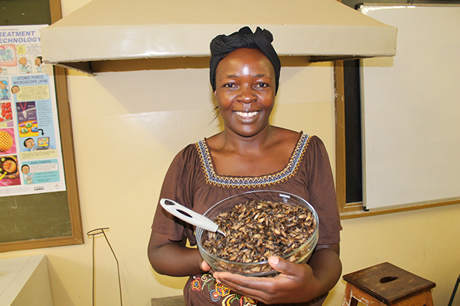
Kampala, June 10, 2016: The World Bank Board has approved the Eastern and Southern Africa Higher Education Centers of Excellence Project (ACEII). Each of the 24 Africa Centers of Excellence (ACE)will be funded up to US$6 million over the project period of five years.
The objective of the ACE II project is to strengthen selected Eastern and Southern Africa higher education institutions to deliver quality postgraduate education and build collaborative research capacity in the regional priority areas.
The selected ACEs are expected to address specific development challenges facing the region through graduate training in Master’s, PhD, and short-term courses and applied research in the form of partnerships and collaborations with other institutions and the private sector.
Eight participating countries– Ethiopia, Kenya, Malawi, Mozambique, Rwanda, Tanzania, Uganda and Zambia –are committing $140 million, credit from the International Development Association (IDA) of the World Bank Group to finance the selected ACEs.
The ACEs were selected through an open, objective, transparent and merit-based competitive process based on the following criteria:
(a) proposal that addressed a specific challenge in one of the five priority areas in the region – industry, agriculture, health, education and applied statistics;
(b) proposal of the highest quality;
(c) hosting institution had evident capacity;
(d) selection that provided for geographical balance; and
(e) the hosting country had International Development Association (IDA) funding eligibility and availability.
All these ACEs are expected to perform the following tasks:
(a) build institutional capacity to provide quality post-graduate education with relevance to the labor market;
(b) build institutional capacity to conduct high quality applied research, relevant to addressing a key development challenge/priority;
(c) develop and enhance partnerships with other academic institutions (national, regional and international) to pursue academic excellence;
(d) develop and enhance partnerships with industry and the private sector to generate greater impact;
(e) improve governance and management of the institution and set up a role model for other higher education institutions; and
(f) deliver outreach, and create an impact, to society by delivering excellent teaching and producing high quality applied research.
Over the project duration of five years, collectively these ACEs are expected to enroll more than 3,500 graduate students in the regional development priority areas, out of which more than 700 will be PhD students and more than 1,000 will be female students,publish almost 1,500 journal articles,launch more than 300 research collaborations with private sector and other institutions, and generate almost US$30 million in external revenue.
The Inter-University Council for East Africa (IUCEA), an institution of the East African Community, was selected by the Regional Steering Committee (RSC) of the ACE II project as the Regional Facilitation Unit (RFU). IUCEA will provide overall coordination, facilitation and administration to the project implementation under the oversight of the RSC. IUCEA, with assistance from the World Bank, coordinated the project preparation including the ACE selection process. IUCEA willprovide forums for industry-academic engagement for ACEs to share knowledge on collaborative research ideas.IUCEA will also supervise a competitive scholarship program in which 30 regional students in STEM will be financed for two years to attain a Master’s degree in any of the ACEs. An IDA grant of US$8 million will finance these activities.
The project will operate under the overall guidance and oversight of the Regional Steering Committee. RSC comprises of members from participating countries, the private sector and academic experts of international stature.
It is envisaged that at the end of the project the centers will have developed sufficient capacity to become sustainable regional hubs for training and research in their specialized fields, capable of leading efforts to address priority development challenges and improve lives in the region. The ACEII project is expected to close in October, 2021.
About The Inter-University Council for East Africa (IUCEA)
The Inter-University Council for East Africa (IUCEA) is an institution of the East African Community (EAC) responsible for coordinating the development of higher education and research, with its headquarters in Kampala, Uganda. IUCEA is the Regional Facilitation Unit for the ACEII Project. www.iucea.org

Sustainable Use of Insects as Food and Feeds (INSEFOODS)




APPROVED EASTERN AND SOUTHERN AFRICA HIGHER EDUCATION CENTERS OF EXCELLENCE


